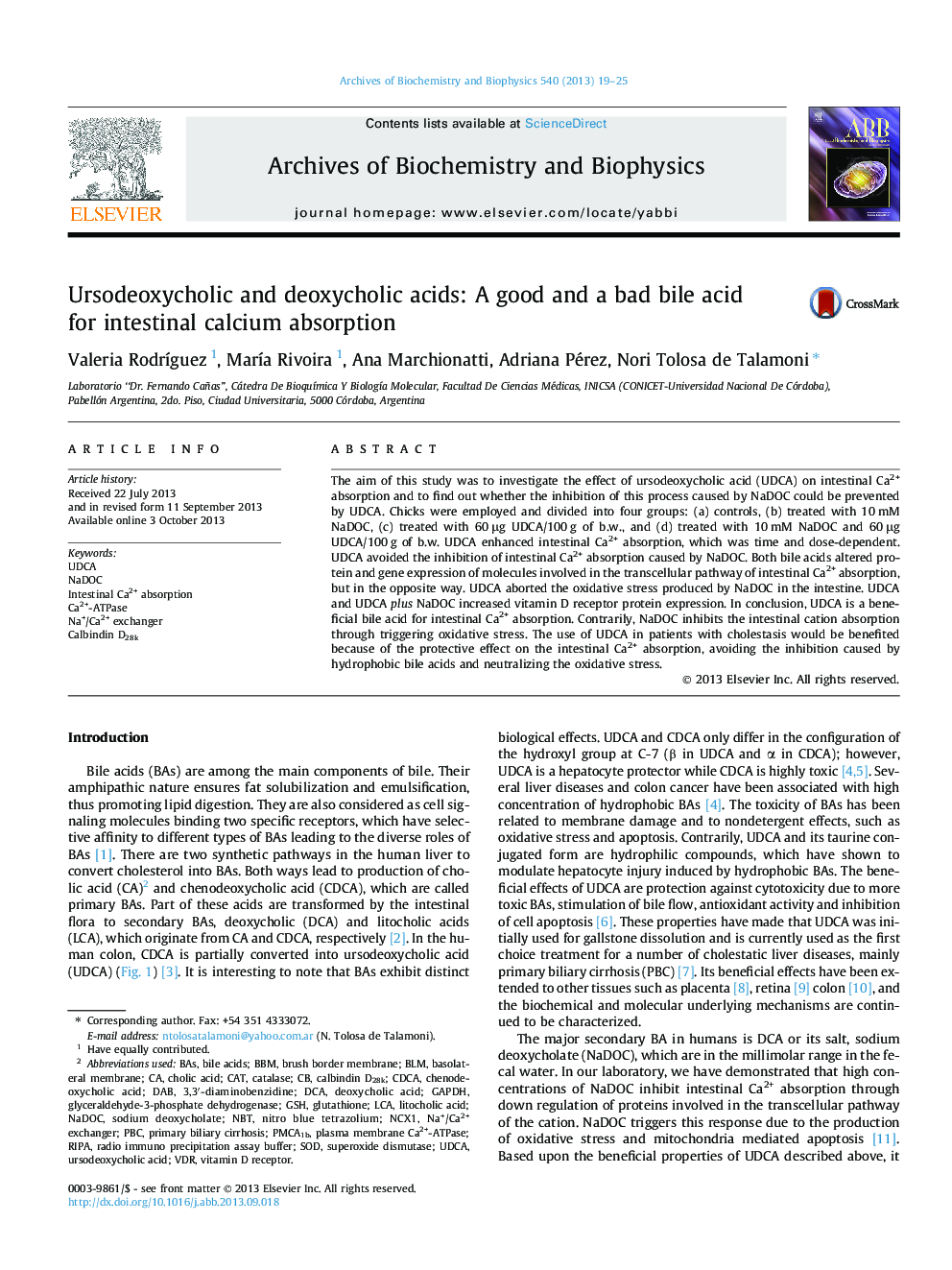| Article ID | Journal | Published Year | Pages | File Type |
|---|---|---|---|---|
| 8290406 | Archives of Biochemistry and Biophysics | 2013 | 7 Pages |
Abstract
The aim of this study was to investigate the effect of ursodeoxycholic acid (UDCA) on intestinal Ca2+ absorption and to find out whether the inhibition of this process caused by NaDOC could be prevented by UDCA. Chicks were employed and divided into four groups: (a) controls, (b) treated with 10 mM NaDOC, (c) treated with 60 μg UDCA/100 g of b.w., and (d) treated with 10 mM NaDOC and 60 μg UDCA/100 g of b.w. UDCA enhanced intestinal Ca2+ absorption, which was time and dose-dependent. UDCA avoided the inhibition of intestinal Ca2+ absorption caused by NaDOC. Both bile acids altered protein and gene expression of molecules involved in the transcellular pathway of intestinal Ca2+ absorption, but in the opposite way. UDCA aborted the oxidative stress produced by NaDOC in the intestine. UDCA and UDCA plus NaDOC increased vitamin D receptor protein expression. In conclusion, UDCA is a beneficial bile acid for intestinal Ca2+ absorption. Contrarily, NaDOC inhibits the intestinal cation absorption through triggering oxidative stress. The use of UDCA in patients with cholestasis would be benefited because of the protective effect on the intestinal Ca2+ absorption, avoiding the inhibition caused by hydrophobic bile acids and neutralizing the oxidative stress.
Related Topics
Life Sciences
Biochemistry, Genetics and Molecular Biology
Biochemistry
Authors
Valeria RodrÃguez, MarÃa Rivoira, Ana Marchionatti, Adriana Pérez, Nori Tolosa de Talamoni,
